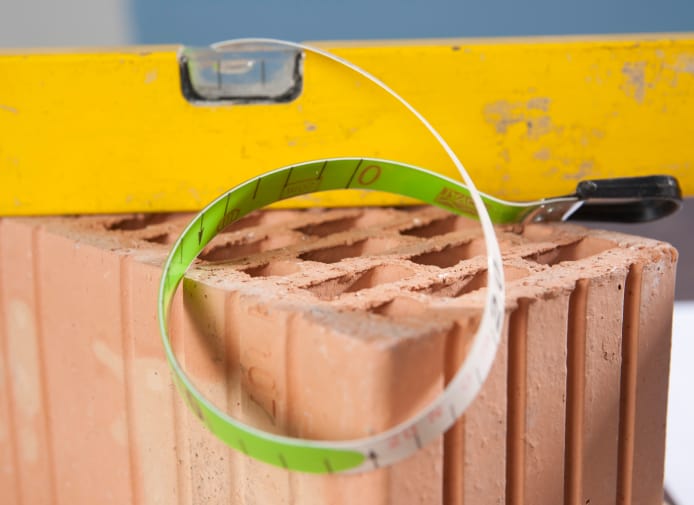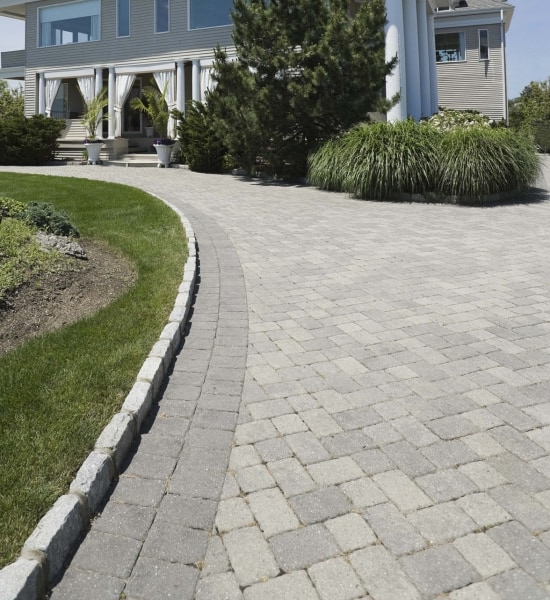How Much Do Bricklayers Cost?
Bricklaying remains a cornerstone in the construction industry, widely valued for its durability and reliability in housing. The standard fee for bricklaying starts at around R190 per square metre, with a minimum project size of 20 square meters. So for a 3m tall by 10m wide wall expect to roughly R5700. However, it’s important to understand that costs can vary significantly depending on the specifics of the job, like location, intricacy, and size.
Brick as a Structural Material
Over the years, brick has consistently been a favoured material for construction, despite often being a more expensive option. Homes can be built using various methods, including:
- Single Brick
- Double Brick
- Brick Veneer
Many homes continue to be constructed from double brick. This preference is due to the excellent thermal mass of double brick (or cavity brick) constructions, which helps keep homes cooler in the summer and warmer in the winter. In contrast, single brick tends to absorb heat during the day and release it into the home at night, which can lead to temperature fluctuations. Brick veneer, while not as effective as double brick, still offers good thermal insulation because it can be fitted with insulative materials.
Durability is another significant factor contributing to brick’s popularity as a building material. Brick structures are known for their longevity, providing lasting stability and aesthetic appeal. This makes brick a reliable choice for those looking to invest in a durable and energy-efficient home.
What do bricklayers do?
Bricklayers are skilled professionals whose primary job is to lay bricks. However, their expertise extends beyond just bricklaying. They possess a diverse set of skills and are capable of performing a variety of construction tasks. In addition to laying bricks, bricklayers:
- Do Brick Pointing: This involves updating or replacing the mortar between bricks, which is essential for maintaining the structural integrity and aesthetic of brickwork.
- Repair Brickwork: They fix damages in brick structures, ensuring longevity and safety.
- Lay Stonework: Similar to bricklaying, but involves different types of stones, requiring specific skills for handling and placing natural or fabricated stone materials.
- Lay Concrete Blocks: This task is akin to bricklaying but uses concrete blocks, which are larger and often used for structural walls in both residential and commercial buildings.
A proficient bricklayer can construct entire homes, build walls, lay bricks for pathways or driveways, and undertake nearly any other type of bricklaying project. However, one task that bricklayers do not typically perform is rendering.
How much do bricklayers charge?
Understanding Bricklayer Charges
The cost of hiring a bricklayer can vary significantly depending on several factors, including the complexity of the project, the type of materials used, and the geographical location. Here’s a general guide to what you might expect to pay for their services:
- Standard Bricklaying: The fee for laying bricks typically starts at around R190 per square meter in areas like Gauteng, with a minimum project size often required (e.g., 20 square meters). This rate can serve as a baseline for simpler projects involving standard brickwork.
- Wall Thickness: Costs can increase based on the thickness of the walls being constructed. For example:
- 115mm Thick Wall: Prices range from R175 to R220 per square meter.
- 230mm Thick Wall: More substantial walls require more materials and labour, pushing prices to between R375 and R420 per square meter.
These costs reflect the labour only. Additionally, specific tasks such as repairing brickwork or laying decorative stonework may incur higher charges due to the increased skill and time required.
What to Look for When Hiring a Bricklayer
Choosing the right bricklayer is crucial for the success of your construction project. Not all bricklayers offer the same level of skill or service, so it’s important to ask the right questions before making a decision. When you receive quotes from bricklayers, consider the following:
- Experience: Ask how long they have been working in your area. A bricklayer with extensive local experience is likely familiar with regional building codes and construction challenges.
- References: Request references and follow up on them. Speaking to past clients can provide insights into the bricklayer’s reliability and quality of work.
- Portfolio: Check if they have a portfolio of their completed projects. A portfolio can give you a visual confirmation of their craftsmanship and the variety of projects they have handled.
- Insurance: Ensure they have the necessary insurance to protect against any potential liabilities during the project.
- NHBRC Registered: Inquire whether they hold a trade licence. While not always mandatory for smaller projects in some regions, a licensed bricklayer generally indicates a higher level of professionalism and expertise.
Even if trade licensing is not required for your specific project, opting for a bricklayer who is licensed can provide additional assurance of their capabilities and professionalism. Taking these steps will help you select a skilled and reliable bricklayer suited to your construction needs.


